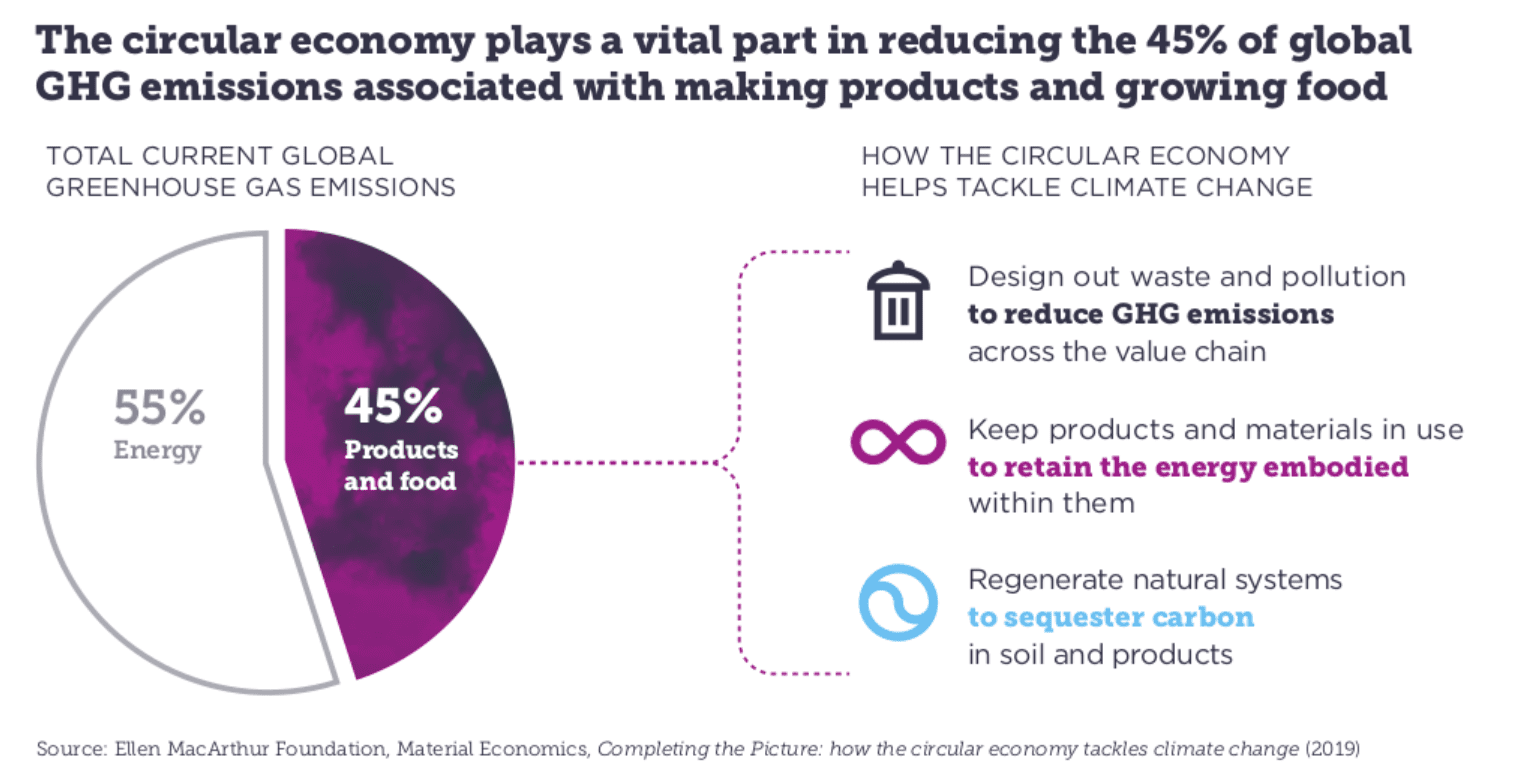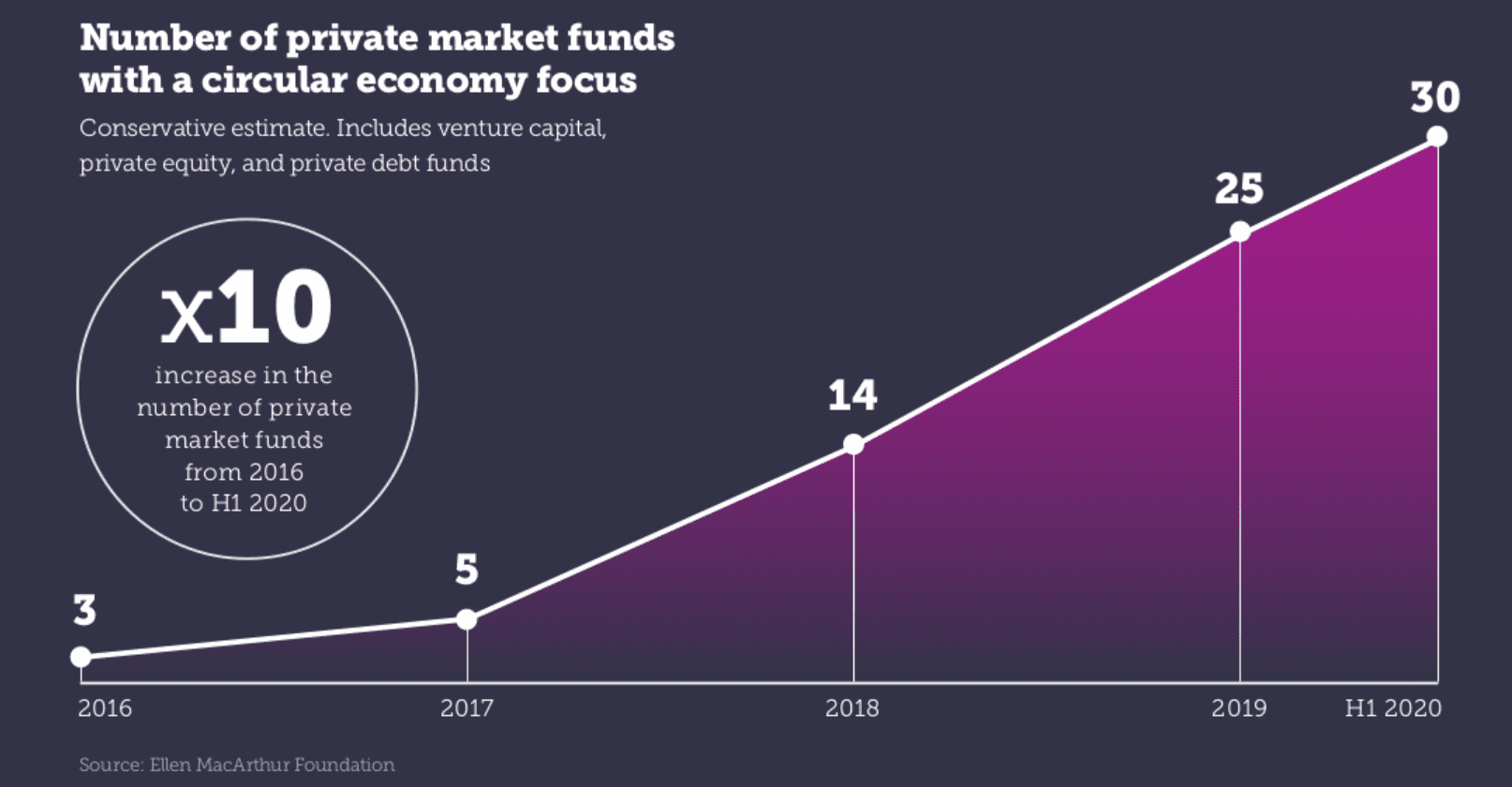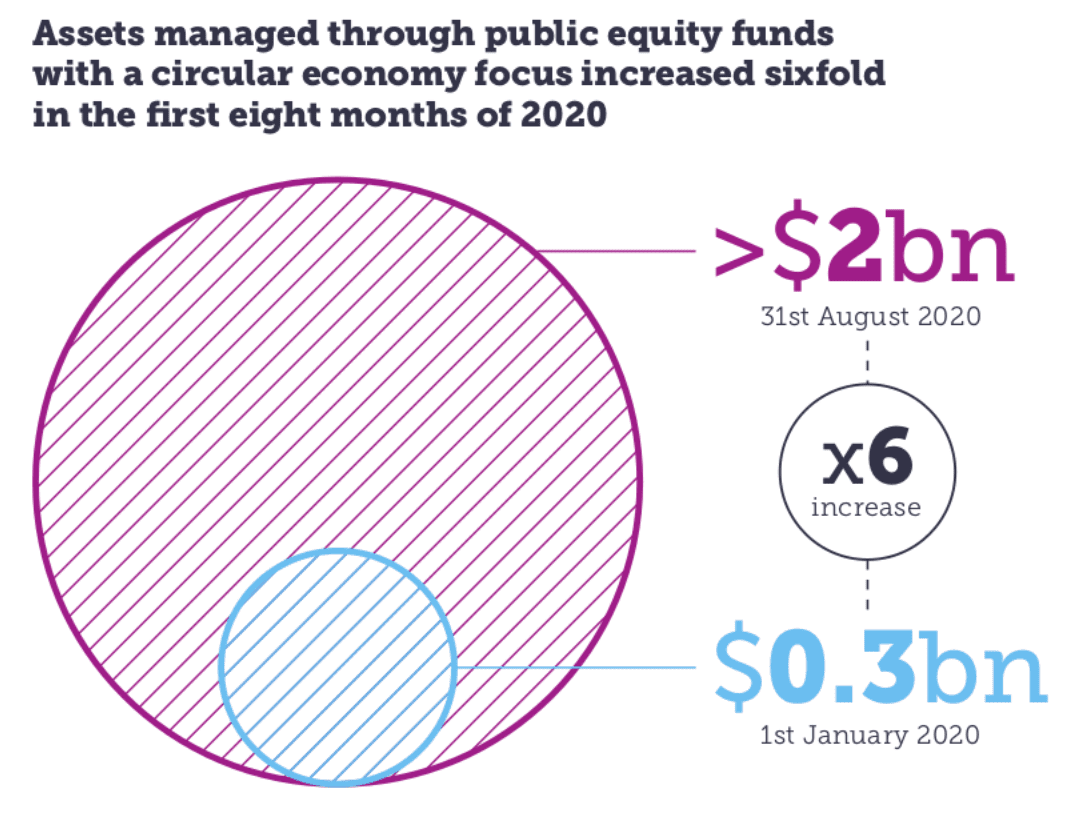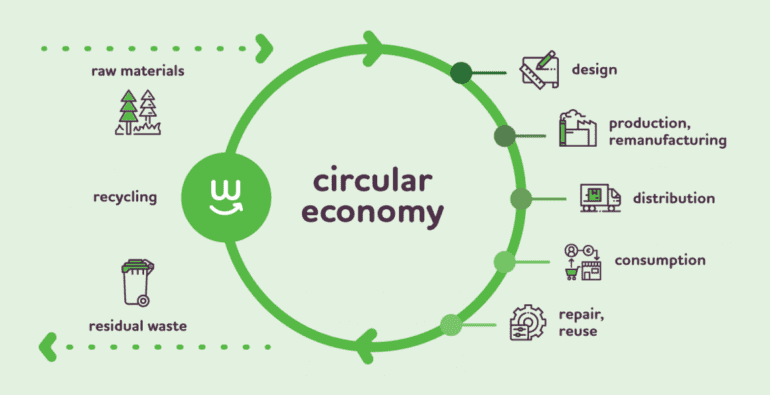We hear more and more about net-zero objectives in the last few years.
Since 126 countries signed the Paris agreement at COP 21 in 2015, climate change has strongly focused on international governments’ agendas. The further finalization of the agreement at COP 26 at the end of 2021 in Glasgow saw a further strengthening of efforts.
Fintech is seen as playing a significant role in reaching climate change objectives. The UN has estimated that to meet climate change objectives, an investment of $90 trillion would need to be made to create sustainable infrastructure by 2030. At COP 26, new financial pledges were made to support developing countries in achieving this goal.
Switching to a circular economy
A significant factor forming part of the European Commission’s bid to create a more sustainable society is developing a circular economy.
The European Green Deal set a plan for creating sustainable growth within the EU. It outlined a plan to make Europe a “modern, resource-efficient and competitive economy.”
Aside from achieving net-zero emissions, they focused on creating an economy that could achieve growth without it being relative to resource use.

This target led to the formation of the new Circular Economy Action Plan (CEAT). Measures would be implemented to, among other things, make sustainable products the norm and ensure less waste in a bid to lead global efforts on a circular economy and reduce pressure on natural resources.
In March and April 2022, they have adopted various regulations in line with this plan. This included implementing increased visibility regulations on company compliance with net-zero targets and initiatives focused on the increased usage of sustainable packaging and reusable products.
The term ‘circular economy’ refers to the cycle of reusing objects and where they would traditionally be thrown away. It provides an alternative to the traditional “linear economy” that has been the general state of play over the past few decades. The consumer mentality of “extract, use, dispose.”
According to the World Economic Forum, in 2019, over 92 billion tonnes of materials were extracted and processed, contributing to half of the global CO2 emissions. In addition to this, the waste products of this continuous manufacture and disposal cycle, plastic, food, textiles, etc., cause their own adverse effects on the global ecosystem.
The circular economy model is reported to have the potential to yield $4.5 trillion in economic benefits by 2030; however, currently, only 8.6% of the world operates in this way.
Increase in focused businesses
The engagement of society is happening on several levels. Twig group is one of many businesses focused on making a circular economy more accessible to consumers.
On opening an account with their mobile banking solution, TwigPay, clients can upload the items they are willing to exchange, crediting their account instantaneously with the equivalent value to make purchases. The articles are then sent to Twig.
The company has already won various awards and has partnered with multiple platforms to streamline its service. The most recent addition to the platform is their partnership with Mobi Market, reported as a strategy to strengthen its circular payments proposition.

Mobi Market is one of Europe’s fastest-growing online marketplaces of used mobile phones and has meaningful relationships with associated insurance companies and network providers.
Geri Cupi, Twig’s founder and CEO, comments: “We are excited to welcome Mobi Market and its team into our Twig ecosystem. We look forward to joining forces to bring another dimension to circular economy services and delighting our customers.”
According to various studies, the company’s primary user group currently consists of GenZ and Millenials, the sector most concerned with sustainable practices.
In a study conducted by the United Nations Development Programme, it was found that 65% of people aged 18-35 considered climate change to be an emergency, with an even higher percentage of children under 18. Much of their product offering aims to serve this demographic, and they have plans to extend into Web3, although there are few details to date.
Finance and the circular economy
By directing funds towards initiatives and businesses which support the model, finance can support the creation of a circular economy.
However, in addition to creating a thriving circular economy for global benefit through sustainable growth, the model is also seen to create an investment opportunity.
According to a study by Bocconi University of 200-plus European companies across 14 industries, the more circular a company is, the lower the risk of defaulting on debt.
The analysis found that adopting circular practices can reduce risk and increase resilience through better anticipation of stricter regulation and changing customer preference, an improved environmental impact, and the creation of an ability to grow without it being relative to increased resource use.

Increasingly businesses are turning towards the circular model to improve growth and resistance to long-term risk.
There has been a significant rise in debt and equity instruments created with that focus in the past two years. By the end of June 2021, 13 public equity funds focused on the circular economy, with an asset value totaling $8 billion under management since 2019. In addition, over 35 corporate and sovereign bonds have been issued to help finance circular economy activity.
BlackRock’s institutional asset manager has increased investment in businesses with a circular model over the past few years, creating a fund in October 2019 with this focus.
Paul Bodnar, Global Head of Sustainable Investing at BlackRock, has said, “If you’re an investor focused on long-term value creation, and you live on a planet with finite resources, you have a vested interest in the circular economy.”

Larry Fink, CEO of BlackRock, agreed, “The circular economy concept is so important. This is a good way to invest, not just for social reasons, not just for environmental reasons, but for investment reasons, performance reasons.”
They are not alone. ING has committed $118 million for scale-ups that make a positive environmental impact in areas including the circular economy. Lloyd’s Bank has set up their $2.6 billion Clean Growth Finance that offers discounted lending to SMEs with a ‘green purpose’ including circular businesses, among many more.
A report conducted by the Ellen MacArthur Foundation, a leading body in supporting and researching the circular economy, showed that almost 600 companies, 130 of which with over $1 billion in revenues, have started to measure their circular economy progress.


